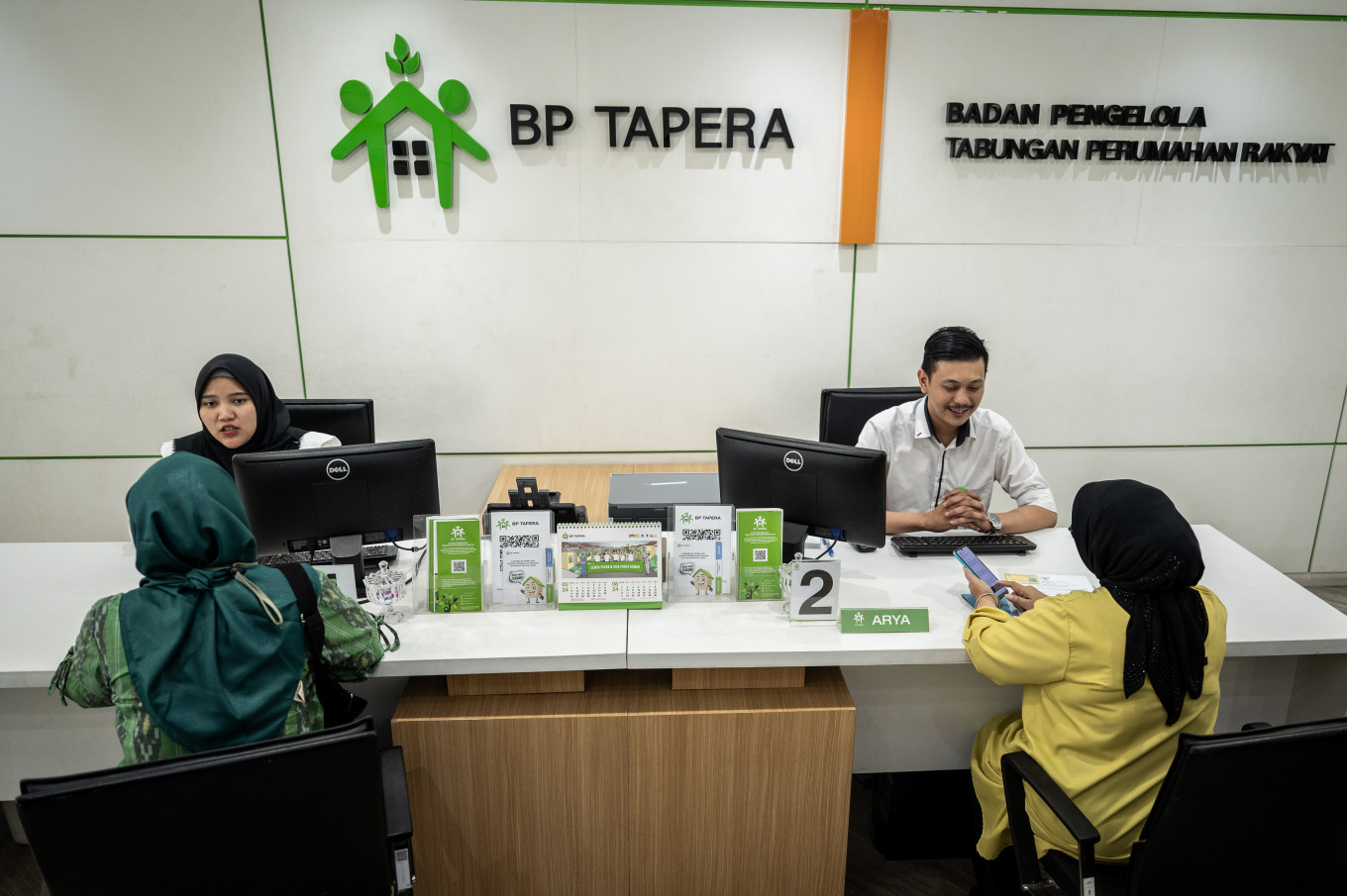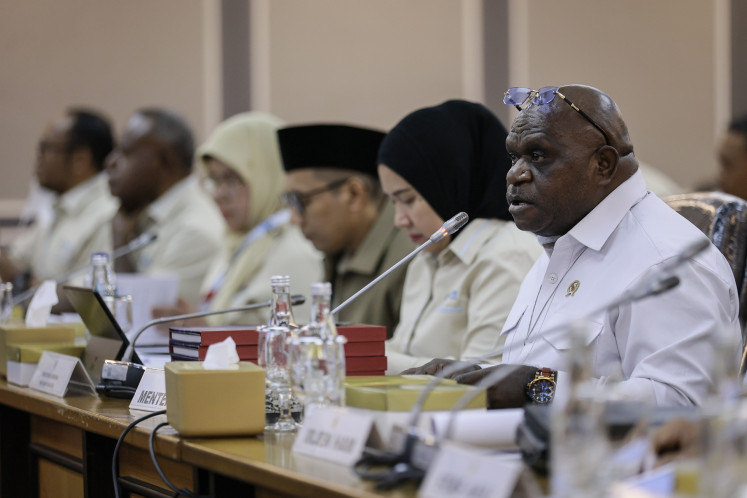Popular Reads
Top Results
Can't find what you're looking for?
View all search resultsPopular Reads
Top Results
Can't find what you're looking for?
View all search resultsBrief look: Tapera and similar home savings schemes in other countries
Regardless of the public backlash against Tapera, government-run home savings schemes are nothing new: Here is a glance at similar programs in a handful of countries across the Asia-Pacific.
Change text size
Gift Premium Articles
to Anyone
T
he Public Housing Savings (Tapera) program, the government’s mandatory home savings scheme, has grabbed much attention in recent weeks, both good and bad.
One of the main criticisms is that it places an unnecessary financial burden on low-income workers as well as existing homeowners. Meanwhile, doubts surround the actual benefits of a program that was first conceived in 2016.
But President Joko “Jokowi” Widodo has stood by the government’s impact assessment of the program and says he believes that people will adapt.
Program administrator BP Tapera says it aims to build trust by informing the public of the scheme’s long-term benefits, including easier housing access.
Government Regulation (PP) No. 21/2024, a revision of the previous 2020 regulation, mandates a matching contribution mechanism for civil servants, private workers and freelancers.
Under this mechanism, 3 percent of workers’ monthly wages are deducted to fund Tapera, with employers contributing 0.5 percent and employees the remainder, while freelancers must foot the entire 3 percent.
Tapera participants must be at least 20 years old or married and earning at least the minimum wage, while Article 15 of PP No. 21/2024 2024 mandates employers to register eligible employees to the Tapera program by May 20, 2027.
Read also: Tapera program faces backlash from employees, employersForeign models
The Tapera program allows participants to use their savings to purchase, build or renovate a home, though the details are being fine-tuned.
The idea of providing a safety net for home ownership is hardly new, as other countries have implemented similar schemes for years.
Singapore has the Central Provident Fund (CPF), which allows participants to use their savings to buy homes. Under this scheme, workers are deducted 20 percent of their salary each month, matched by a 17 percent contribution from their employers. While the rates are steeper, Singapore has a mature state housing program with an after-market scheme, unlike Indonesia.
In Australia, the federal government offers the First Home Super Saver (FHSS) program, under which people save money to buy a home via their pension scheme through voluntary contributions of between A$15,000 and $50,000 per year.
China has the Housing Provident Fund (HPF) managed by municipalities, which requires employees and employers to contribute a percentage based on the previous year’s average monthly wage to help people buy homes.
In South Korea, the National Housing & Urban Fund (NHUF) aims to make housing more affordable by obligating employees and employers to contribute a percentage of monthly wages set by the government based on income levels, Tempo.co reported.
And Malaysia has the Employees Provident Fund (EPF), which helps workers save for both housing and retirement through a matching contribution mechanism, with the government setting monthly rates based on a worker's age and residency status.










